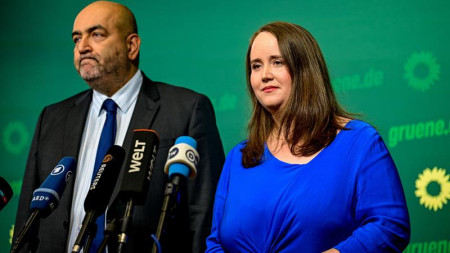* Реестр иностранных средств массовой информации, выполняющих функции иностранного агента:
Голос Америки, Idel.Реалии, Кавказ.Реалии, Крым.Реалии, Телеканал Настоящее Время, Azatliq Radiosi, Радио Свобода, Сибирь.Реалии, Фактограф, Север.Реалии, MEDIUM-ORIENT, Пономарев Лев Александрович, Савицкая Людмила Алексеевна, Маркелов Сергей Евгеньевич, Камалягин Денис Николаевич, Апахончич Дарья Александровна, Medusa Project, Первое антикоррупционное СМИ, VTimes.io, Баданин Роман Сергеевич, Гликин Максим Александрович, Маняхин Петр Борисович, Ярош Юлия Петровна, Чуракова Ольга Владимировна, Железнова Мария Михайловна, Лукьянова Юлия Сергеевна, Маетная Елизавета Витальевна, The Insider SIA, Рубин Михаил Аркадьевич, Гройсман Софья Романовна, Рождественский Илья Дмитриевич, Апухтина Юлия Владимировна, Постернак Алексей Евгеньевич, Телеканал Дождь, Петров Степан Юрьевич, Istories fonds, Шмагун Олеся Валентиновна, Мароховская Алеся Алексеевна, Долинина Ирина Николаевна, Шлейнов Роман Юрьевич, Анин Роман Александрович, Великовский Дмитрий Александрович, Альтаир 2021, Ромашки монолит, Главный редактор 2021, Вега 2021, Важные иноагенты, Каткова Вероника Вячеславовна, Карезина Инна Павловна, Кузьмина Людмила Гавриловна, Костылева Полина Владимировна, Лютов Александр Иванович, Жилкин Владимир Владимирович, Жилинский Владимир Александрович, Тихонов Михаил Сергеевич, Пискунов Сергей Евгеньевич, Ковин Виталий Сергеевич, Кильтау Екатерина Викторовна, Любарев Аркадий Ефимович, Гурман Юрий Альбертович, Грезев Александр Викторович, Важенков Артем Валерьевич, Иванова София Юрьевна, Пигалкин Илья Валерьевич, Петров Алексей Викторович, Егоров Владимир Владимирович, Гусев Андрей Юрьевич, Смирнов Сергей Сергеевич, Верзилов Петр Юрьевич, ЗП, Зона права, ЖУРНАЛИСТ-ИНОСТРАННЫЙ АГЕНТ, Вольтская Татьяна Анатольевна, Клепиковская Екатерина Дмитриевна, Сотников Даниил Владимирович, Захаров Андрей Вячеславович, Симонов Евгений Алексеевич, Сурначева Елизавета Дмитриевна, Соловьева Елена Анатольевна, Арапова Галина Юрьевна, Перл Роман Александрович, МЕМО, Mason G.E.S. Anonymous Foundation, Stichting Bellingcat, Москоу диджитал медиа, РС-Балт
* Сведения реестра НКО, выполняющих функции иностранного агента:
Центр гендерных исследований, Четвертый сектор, Фонд защиты прав граждан Штаб, Институт права и публичной политики, Лаборатория социальных наук, Фонд борьбы с коррупцией, Альянс врачей, Центр по работе с проблемой насилия НАСИЛИЮ.НЕТ, Мы против СПИДа, СВЕЧА, Феникс ПЛЮС, Открытый Петербург, Гуманитарное действие, Лига Избирателей, Правовая инициатива, Гражданская инициатива против экологической преступности, Гражданский Союз, благотворительный Центр Хасдей Ерушалаим, Центр поддержки и содействия развитию средств массовой информации, Горячая Линия, В защиту прав заключенных, Институт глобализации и социальных движений, Центр социально-информационных инициатив Действие, ВМЕСТЕ, Благотворительный фонд охраны здоровья и защиты прав граждан, Благотворительный фонд помощи осужденным и их семьям, Фонд Тольятти, Новое время, Серебряная тайга, Так-Так-Так, центр Сова, центр Анна, Проект Апрель, Самарская губерния, Эра здоровья, общество Мемориал, Аналитический Центр Юрия Левады, Издательство Парк Гагарина, Фонд содействия защите здоровья и социальной справедливости имени Андрея Рылькова, Сфера, СИБАЛЬТ, Уральская правозащитная группа, Женщины Евразии, Институт прав человека, Фонд защиты гласности, Центр по правам человека, Дальневосточный центр инициатив и социального партнерства, Пермский региональный правозащитный центр, Гражданское действие, Центр независимых социологических исследований, Сутяжник, АКАДЕМИЯ ПО ПРАВАМ ЧЕЛОВЕКА, Частное учреждение по реализации программ и проектов Совета Министров, Центр развития некоммерческих организаций, Гражданское содействие, Трансперенси Интернешнл-Р, Центр Защиты Прав Средств Массовой Информации, Институт развития прессы - Сибирь, Фонд поддержки свободы прессы, Гражданский контроль, Человек и Закон, Общественная комиссия по сохранению наследия академика Сахарова, Информационное агентство МЕМО.РУ, Институт региональной прессы, Институт Развития Свободы Информации, Экозащита!-Женсовет, Общественный вердикт, Евразийская антимонопольная ассоциация, Милославский Павел Юрьевич, Шнырова Ольга Вадимовна, Сечина Анастасия Евгеньевна, Чанышева Лилия Айратовна, Сидорович Ольга Борисовна, Таранова Юлия Николаевна, Туровский Александр Алексеевич, Васильева Анастасия Евгеньевна, Ривина Анна Валерьевна, Бурдина Юлия Владимировна, Бойко Анатолий Николаевич, Писемский Евгений Александрович, Пивоваров Андрей Сергеевич, Дугин Сергей Георгиевич, Аверин Виталий Евгеньевич, Барахоев Магомед Бекханович, Шевченко Дмитрий Александрович, Шарипков Олег Викторович, Мошель Ирина Ароновна, Шведов Григорий Сергеевич, Пономарев Лев Александрович, Каргалицкий Борис Юльевич, Созаев Валерий Валерьевич, Исакова Ирина Александровна, Исламов Тимур Рифгатович, Романова Ольга Евгеньевна, Щаров Сергей Алексадрович, Цирульников Борис Альбертович, Халидова Марина Владимировна, Людевиг Марина Зариевна, Федотова Галина Анатольевна, Паутов Юрий Анатольевич, Верховский Александр Маркович, Пислакова-Паркер Марина Петровна, Кочеткова Татьяна Владимировна, Чуркина Наталья Валерьевна, Акимова Татьяна Николаевна, Золотарева Екатерина Александровна, Рачинский Ян Збигневич, Жемкова Елена Борисовна, Гудков Лев Дмитриевич, Илларионова Юлия Юрьевна, Саранг Анна Васильевна, Захарова Светлана Сергеевна, Аверин Владимир Анатольевич, Щур Татьяна Михайловна, Щур Николай Алексеевич, Блинушов Андрей Юрьевич, Мосин Алексей Геннадьевич, Гефтер Валентин Михайлович, Симонов Алексей Кириллович, Флиге Ирина Анатольевна, Мельникова Валентина Дмитриевна, Вититинова Елена Владимировна, Баженова Светлана Куприяновна, Исаев Сергей Владимирович, Максимов Сергей Владимирович, Беляев Сергей Иванович, Голубева Елена Николаевна, Ганнушкина Светлана Алексеевна, Закс Елена Владимировна, Буртина Елена Юрьевна, Гендель Людмила Залмановна, Кокорина Екатерина Алексеевна, Шуманов Илья Вячеславович, Арапова Галина Юрьевна, Свечников Анатолий Мариевич, Прохоров Вадим Юрьевич, Шахова Елена Владимировна, Подузов Сергей Васильевич, Протасова Ирина Вячеславовна, Литинский Леонид Борисович, Лукашевский Сергей Маркович, Бахмин Вячеслав Иванович, Шабад Анатолий Ефимович, Сухих Дарья Николаевна, Орлов Олег Петрович, Добровольская Анна Дмитриевна, Королева Александра Евгеньевна, Смирнов Владимир Александрович, Вицин Сергей Ефимович, Золотухин Борис Андреевич, Левинсон Лев Семенович, Локшина Татьяна Иосифовна, Орлов Олег Петрович, Полякова Мара Федоровна, Резник Генри Маркович, Захаров Герман Константинович
* Единый федеральный список организаций, в том числе иностранных и международных организаций, признанных в соответствии с законодательством Российской Федерации террористическими:
Высший военный Маджлисуль Шура, Конгресс народов Ичкерии и Дагестана, Аль-Каида, Асбат аль-Ансар, Священная война, Исламская группа, Братья-мусульмане, Партия исламского освобождения, Лашкар-И-Тайба, Исламская группа, Движение Талибан, Исламская партия Туркестана, Общество социальных реформ, Общество возрождения исламского наследия, Дом двух святых, Джунд аш-Шам, Исламский джихад, Имарат Кавказ, АБТО, Правый сектор, Исламское государство, Джабха аль-Нусра ли-Ахль аш-Шам, Народное ополчение имени К. Минина и Д. Пожарского, Аджр от Аллаха Субхану уа Тагьаля SHAM, АУМ Синрике, Ат-Тавхида Валь-Джихад, Чистопольский Джамаат, Рохнамо ба суи давлати исломи, Террористическое сообщество Сеть, Катиба Таухид валь-Джихад, Хайят Тахрир аш-Шам, Ахлю Сунна Валь Джамаа
* Перечень общественных объединений и религиозных организаций в отношении которых судом принято вступившее в законную силу решение о ликвидации или запрете деятельности:
Национал-большевистская партия, ВЕК РА, Рада земли Кубанской Духовно Родовой Державы Русь, Община Духовного Управления Асгардской Веси Беловодья, Славянская Община Капища Веды Перуна, Мужская Духовная Семинария Староверов-Инглингов, Нурджулар, К Богодержавию, Таблиги Джамаат, Свидетели Иеговы, Русское национальное единство, Национал-социалистическое общество, Джамаат мувахидов, Объединенный Вилайат Кабарды, Балкарии и Карачая, Союз славян, Ат-Такфир Валь-Хиджра, Пит Буль, Национал-социалистическая рабочая партия России, Славянский союз, Формат-18, Благородный Орден Дьявола, Армия воли народа, Национальная Социалистическая Инициатива города Череповца, Духовно-Родовая Держава Русь, Русское национальное единство, Древнерусской Инглистической церкви Православных Староверов-Инглингов, Русский общенациональный союз, Движение против нелегальной иммиграции, Кровь и Честь, О свободе совести и о религиозных объединениях, Омская организация общественного политического движения Русское национальное единство, Северное Братство, Клуб Болельщиков Футбольного Клуба Динамо, Файзрахманисты, Мусульманская религиозная организация п. Боровский, Община Коренного Русского народа Щелковского района, Правый сектор, УНА - УНСО, Украинская повстанческая армия, Тризуб им. Степана Бандеры, Братство, Белый Крест, Misanthropic division, Религиозное объединение последователей инглиизма, Народная Социальная Инициатива, TulaSkins, Этнополитическое объединение Русские, Русское национальное объединение Атака, Мечеть Мирмамеда, Община Коренного Русского народа г. Астрахани, ВОЛЯ, Меджлис крымскотатарского народа, Рубеж Севера, ТОЙС, О противодействии экстремистской деятельности, РЕВТАТПОД, Артподготовка, Штольц, В честь иконы Божией Матери Державная, Сектор 16, Независимость, Фирма, Молодежная правозащитная группа МПГ, Курсом Правды и Единения, Каракольская инициативная группа, Автоград Крю, Союз Славянских Сил Руси, Алля-Аят, Благотворительный пансионат Ак Умут, Русская республика Русь, Арестантское уголовное единство, Башкорт, Нация и свобода, Нация и свобода, W.H.С., Фалунь Дафа, Иртыш Ultras, Русский Патриотический клуб-Новокузнецк/РПК, Сибирский державный союз, Фонд борьбы с коррупцией, Фонд защиты прав граждан, Штабы Навального, Совет граждан СССР Прикубанского округа г. Краснодара, Мужское государство, Народное объединение русского движения, Народное движение Адат, Народный совет граждан РСФСР СССР Архангельской области, Проект Штурм, Граждане СССР, Держава Союз Советских Светлых Родов, Совет Советских Социалистических Районов, Meta Platforms Inc, Facebook, Instagram, WhatsApp, СИЧ-С14, Добровольческое Движение Организации украинских националистов, Черный Комитет, Татарстанское Региональное Всетатарское общественное движение, Невоград, Молодежное Демократическое Движение Весна, Верховный Совет Татарской Автономной Советской Социалистической Республики, Конгресс ойрат-калмыцкого народа, Исполнительный комитет совета народных депутатов Красноярского края, Этническое национальное объединение, ЛГБТ, Я.МЫ Сергей Фургал










